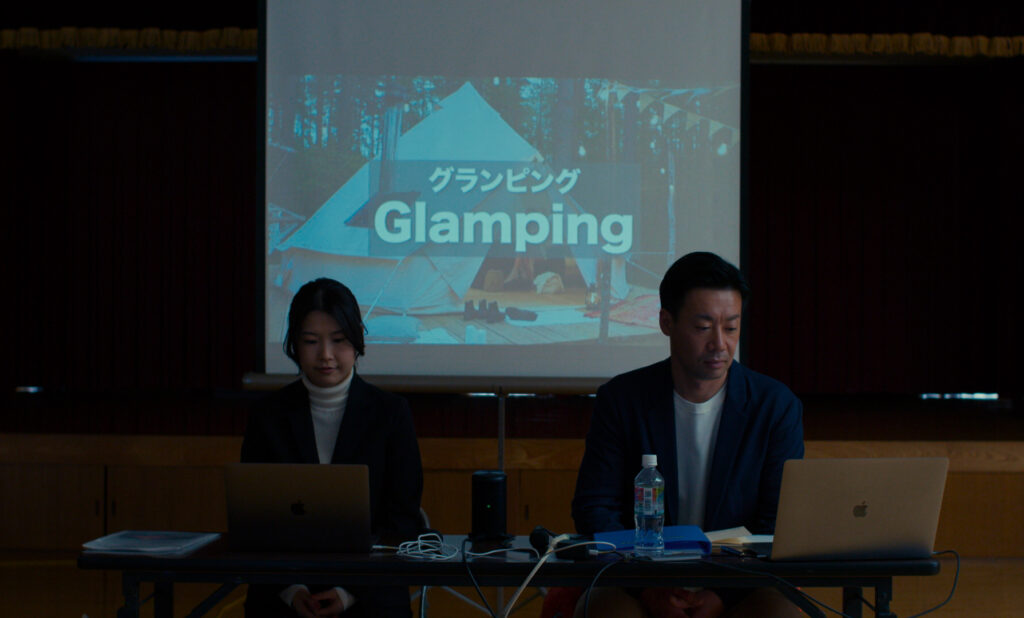Evil Does Not Exist has a lot to say, if you’re on the right wavelength to listen.
Or rather, instead of dictating anything specific, it’s more likely to open up questions and areas of reflection, encouraging the viewer to bring their own thoughts into the experience.
In this latest opus by Ryûsuke Hamaguchi, director of the 2021 Best International Feature Film Oscar winner Drive My Car, a single father looks after his daughter, while their pastoral village outside of Tokyo confronts oncoming change in the form of a “glamping” campground making moves to set up in the area.
Sure, Evil Does Not Exist is sort of about those characters and their conflicts. Modernity and traditionalism clash. The rural “rubes” show themselves to be smarter, more organized, better informed and more articulate than the big-city glamping corporation was counting on, with their pair of “talent agency” representatives sent to mollify the villagers with corporate doublespeak. The father, Takumi (Hitoshi Omika), frequently forgets to pick up his daughter Hana (Ryo Nishikawa) from daycare, although he shows his devotion to her in other ways.
But it’s also about, or at least invites thoughts about, so much more. There’s the beauty to be found in routines and in the mundane. The complex relationship between humanity and nature, both environmental and the nature within ourselves. Reconciliation of conflicting desires and interests. The give-and-take cycles of life.
The film is very light on dialogue and plot – much more so than Drive My Car, which was already a contemplative, slow-paced patience test for some. Evil Does Not Exist turns those qualities up to eleven: very long takes of very long shots, with the subjects deep in the background. For long stretches of time, nothing (or “nothing”) happens except for the babbling of a brook or the rustling of trees.
This is partly due to the creative process that originated this film: Hamaguchi conceived it as a visual companion to a musical piece by composer Eiko Ishibashi (who also scored Drive My Car). There is also a separate sister piece entitled Gift, which is a musical “live score film performance” accompanied by a silent film that was cut from the material originally shot for Evil Does Not Exist.
It all comes together as a visually and sonically lush, emotionally profound thinker, which asks many more questions of its audience than it answers. Fans of similarly quietly beautiful work by great humanist directors like Hirokazu Kore-eda, Edward Yang, Abbas Kiarostami, and Kelly Reichardt will surely resonate with this film.
Following two sold-out screenings earlier this month near the start of the Seattle International Film Festival, Evil Does Not Exist opens its theatrical run this weekend at the SIFF Cinema Egyptian.




